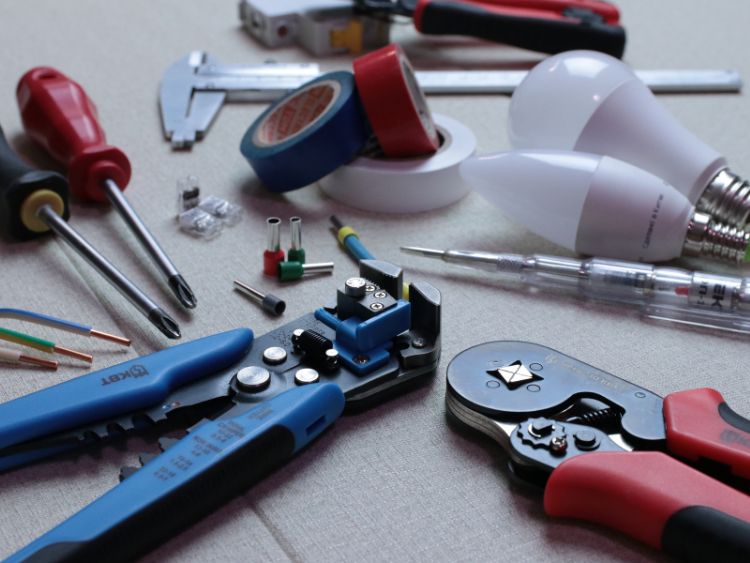In the intricate world of automotive maintenance, auto electrical repair stands out as a critical, yet often daunting task. It’s the heart and soul of your vehicle’s functionality, governing everything from starting the engine to the flicker of your turn signal. This comprehensive guide aims to demystify the complexities surrounding this topic, ensuring you’re well-equipped to tackle or understand the essentials of auto electrical repair.
Picture this: you’re about to head out, and your car refuses to start. Or perhaps, more subtly, the dashboard lights up like a Christmas tree when it shouldn’t. Welcome to the world of auto electrical problems – a realm that can range from mildly inconvenient to outright perplexing. But fear not! We’re about to embark on a journey into the heart of auto electrical repair, unpacking everything from the basics to the not-so-basic, ensuring you’re armed with the knowledge to deal with these issues head-on or at least understand what your mechanic is talking about.
Understanding Auto Electrical Systems: A Primer
Before we get our hands dirty, let’s lay down some groundwork. The electrical system of a vehicle is akin to the human nervous system – complex, intricate, and absolutely vital for proper function. Here’s a quick rundown of its key components:
- Battery: The heart of the system, providing the juice needed to start your car and power the electrical components when the engine is off.
- Alternator: Keeps the battery charged and powers the electrical system when the engine is running.
- Starter Motor: Turns the engine over when you turn the key or push the start button.
- Fuses and Relays: Protect the electrical system by breaking the circuit if the current is too high, and control the flow of high-current to certain parts of the vehicle.
- Wiring and Connectors: The veins and arteries, transmitting power and signals throughout the vehicle.
Understanding these components is crucial for diagnosing and repairing any issues that may arise.
Common Auto Electrical Problems and Solutions
Now that we’ve covered the basics, let’s dive into some common electrical issues and how to tackle them:
- Dead Battery: The most common culprit. If your car won’t start, and the lights and radio are off, it’s time to check the battery. A simple jump-start can get you going, but if the battery is old, replacement might be the best option.
- Faulty Alternator: If your battery keeps dying or your lights dim while driving, the alternator might be the issue. A multimeter test can confirm if it’s charging correctly.
- Blown Fuses: If specific electrical components stop working, a blown fuse could be the cause. Check your vehicle’s manual for the fuse box location and replace any blown fuses.
- Starter Problems: A clicking sound when turning the key is a telltale sign. This might require a professional look, as replacing or repairing a starter can be intricate.
- Electrical Shorts: These can cause a variety of issues, from flickering lights to blown fuses. Tracking down a short requires patience and a wiring diagram of your vehicle.
DIY Tips for Auto Electrical Repair
For those inclined to tackle auto electrical repairs themselves, here are some tips:
- Always Disconnect the Battery: Before starting any repair, disconnect the battery to avoid shocks or damaging electrical components.
- Use the Right Tools: A multimeter is essential for diagnosing electrical issues. Ensure you also have a set of quality screwdrivers, pliers, and wire strippers.
- Consult the Vehicle’s Manual: This can provide a wealth of information, including wiring diagrams and the location of electrical components.
- Take Your Time: Rushing can lead to mistakes. If you’re not confident, seeking professional help is always the best option.
When to Seek Professional Help
While many electrical issues can be resolved with a bit of DIY spirit, some problems require the expertise of a professional. Complex issues like wiring problems or electronic control unit (ECU) faults are best left to the experts. Additionally, if you’ve tried to troubleshoot an issue without success, it’s time to call in a professional.
FAQs
What are the signs of electrical problems in a car?
Look out for dimming lights, unusual battery drain, non-functioning electronic components, and the engine not starting.
Can I fix auto electrical problems myself?
Many minor issues can be tackled at home with the right tools and knowledge. However, complex problems should be handled by professionals.
How often should the electrical system be checked?
It’s wise to have it checked annually, or if you notice any of the aforementioned signs of trouble.
Summary
Navigating the world of auto electrical repair might seem daunting, but with a solid understanding of your vehicle’s electrical system, the right tools, and a bit of patience, many issues can be resolved. Remember, knowledge is power – the more you know about how your vehicle works, the better equipped you’ll be to tackle or understand the repairs needed. Whether you choose the DIY route or opt for professional help, staying informed is key to ensuring your vehicle remains in top electrical health.

